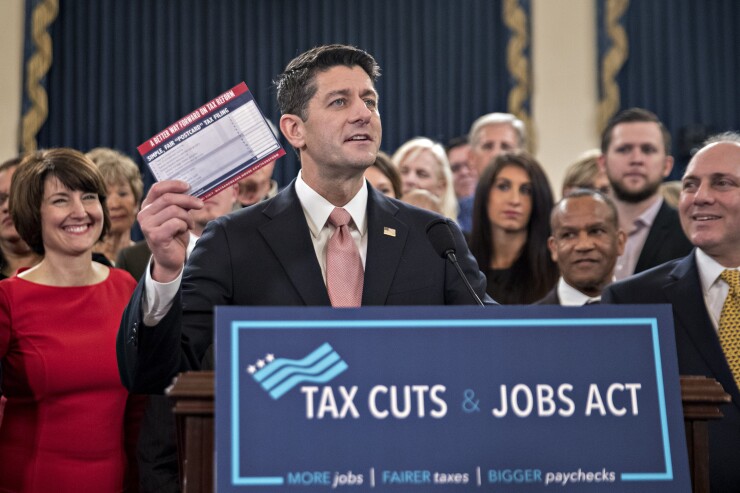Despite rumors to the contrary, the tax bill introduced into the House of Representatives by the Republican Party leadership would do nothing to restrict employees’ ability to make pre-tax deferrals to 401(k), 403(b), or 457(b) plans. Trial balloons had suggested that pre-tax deferrals might be limited to only half of the overall annual deferral limit (or even less), with any remaining deferrals made only on a “Roth” (after-tax) basis. But at least for now, “Rothification” appears to be dead.

What the House bill would do, however, is perhaps even more surprising. A slew of tax-favored fringe benefits would be eliminated. And nonqualified deferred compensation as we know it today would be entirely transformed. Incredibly enough, most of these changes would take effect as of January 1, 2018 – less than two months after the bill’s introduction.
Employee fringe benefits
If enacted as proposed, the bill would repeal (not just limit) the tax-favored treatment of several fringe benefits offered by employers, including the following:
· Dependent care assistance (both the exclusion under Code Section 129 and the credit under Section 21);
· Educational assistance (under Section 127);
· Adoption assistance (under Section 137); and
· Transportation assistance (such as parking or bus passes) under Section 132.
Employers that are now in the midst of annual enrollment for 2018 may need to scramble if these provisions are repealed as of January 1st.
Nonqualified deferred compensation
The changes to the nonqualified deferred compensation rules would make Code Section 409A look like a technical correction. In fact, Section 409A would be repealed for services rendered after December 31, 2017. In its place would be a new Code Section 409B, under which all nonqualified deferred compensation would be taxable as soon as it is no longer subject to a substantial risk of forfeiture – i.e., when it vests.
This is the same standard that currently applies to employees of tax-exempt employers who promise deferred compensation in excess of the Section 457(b) limit. In fact, this bill would also repeal the provision governing such deferred compensation (Section 457(f)) – presumably on the ground that it will no longer be needed once Section 409B takes effect. And tax-exempt employers (other than governments) would no longer be subject to even Section 457(b). They would thus face the same tax-deferral rules as taxable employers.
However, the new Section 409B would be even more restrictive than Section 457(f) in one key respect. The only risk of forfeiture recognized under Section 409B would be a requirement to continue providing substantial services. Neither a covenant not to compete nor the occurrence of a condition related to the purpose of the compensation (such as meeting a profitability target) would create a substantial risk of forfeiture under Section 409B. So these could not be used to defer the taxation of a nonqualified amount.
Qualified retirement plans
Finally, although the House bill stops short of Rothification, it would make some less significant changes to the rules governing tax-qualified retirement plans. For instance, the six-month suspension of employee contributions following a hardship withdrawal would no longer be required. And additional money types would be eligible for hardship withdrawal (including QNECs, QMACs, and earnings on elective deferrals).
The bill would also move toward a more standardized age at which active employees could be allowed to take a withdrawal even without a showing of financial hardship. Both 401(k) and 403(b) plans may already make such in-service withdrawals available at age 59 ½. The bill would extend this same treatment to benefits accrued under defined benefit plans (lowering the in-service withdrawal age from the earlier of the plan’s normal retirement age or 62) and governmental 457(b) plans (lowering the age from 70 ½).
Stay Tuned and Don’t Panic (Yet)
This is only the House bill. The Senate is working on its own tax bill. And as taxpayers (and their lobbyists) “educate” Congress on the virtues of their individual tax loopholes, we are likely to see substantial revisions to these opening bills. Those changes could pare back some of the changes noted above – or we could even see the resurrection of Rothification. Only time will tell.
This article originally appeared on the





